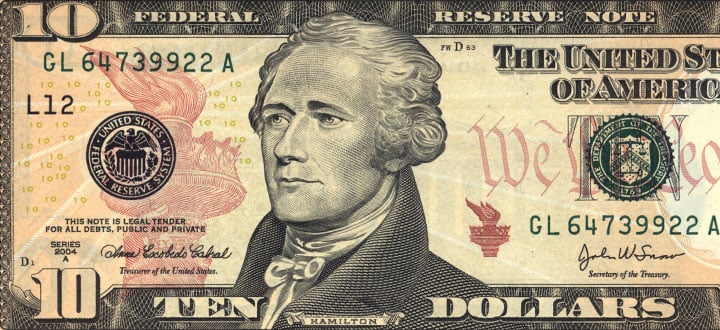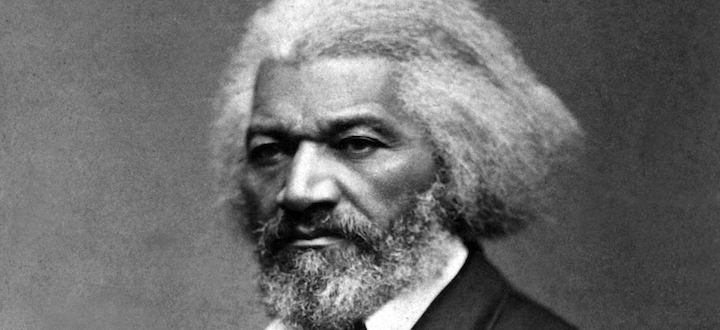Trump Replaces Flynn With Boss of Super Secret Surveillance Contractor. By Kurt Nimmo

Mike Flynn’s out. He resigned as Trump’s advisor this evening after a chorus of calls for him to step down for an alleged relationship with the Russians. This fits the narrative used by Democrats since the election: Putin and the Russians influenced the vote somehow, although nobody can tell us how exactly. Trump and his supporters are in league with them, according to the narrative.
Flynn will be replaced by retired Gen. Keith Kellogg.
Kellogg has an interesting history. In addition to his disastrous mismanagement of the Coalition Provisional Authority in Iraq, Kellogg was president of Abraxas, a wholly owned subsidiary of Cubic Corporation. Cubic provides diversified systems and services to the transportation and defense markets worldwide, according to MarketWatch.
In 2006, The LA Times reported on Abraxas:
The Fallacy of Limited Government
The Fallacy of Limited Government

De Jouvenel concludes his examination on Power with a look at the liberal case for limited government. He holds an imaginary conversation with his liberal counterpart, Émile Faguet:

De Jouvenel concludes his examination on Power with a look at the liberal case for limited government. He holds an imaginary conversation with his liberal counterpart, Émile Faguet:
The state, you tell us, has a normal sphere of competence. Agreed. But how do you define it?At which point de Jouvenel describes the different viewpoints of the different members of this society – where for each, the interpretation and application of this “normal sphere of competence” means significantly different things.
To assure internal order and external security.
What has determined it?
The nature of society which is formed for the defense of all against aggression from without and of each man against assault by his neighbor.
But at this point I pull you up. Who compels me to subscribe to your conception of society?
This entire system is rigged against your prosperity
On January 26, 1841, two years into the First Opium War between China’s Qing Dynasty and the British Empire, Commodore Sir Gordon Bremer hoisted the British flag above Possession Point in Hong Kong.
At the time the island’s population numbered less than 10,000. Most were illiterate fishermen.
Hong Kong was also devoid of any meaningful natural resources except for well-placed geography.
So when the war ended in 1842 and British diplomats formally annexed Hong Kong into their empire, they turned it into a free port almost immediately.
This means that no taxes were charged on goods traded in Hong Kong—an anomaly back then.
Governments routinely squeezed trading posts for tax revenue, taking a cut of all goods shipped through the port.
The biggest gold heist of all time
In 524 BC, a group of pirates set sail for Sifnos, an ancient Greek island famed for its vast gold and silver mines.
The mines of Sifnos were unparalleled in the ancient world.
They produced so much gold and silver that the local government at Sifnos could erect countless monuments, invest in new public works, and still easily have a substantial balance remaining at the end of each year to distribute to the citizens.
When the pirates arrived, they robbed the island of 100 talents of gold, an unfathomable sum at the time.
In the ancient world, a talent was a unit of weight equivalent to 26 kilograms, or about 836 troy ounces.
Doug Casey on the Next Industrial Revolution
by Doug Casey

As you probably know, I believe times are about to get quite rough economically and politically. But, at the same time, I’m very optimistic about what’s happening in science and technology. So let me hazard some predictions. And break the old rule about how, if you predict an event will occur, to make sure you don’t predict its timing.
THE RECENT PAST
I was born just after the end of WW2. It was an idyllic era to be an American. The U.S. had more wealth than the rest of the world combined. Things were mellow at home as “Leave It to Beaver” in the ’50s transitioned into “California Girls” in the early ’60s.True, there were at least a couple of times (the 1962 Cuban Missile Crisis and a while in the early ’80s) when it looked like there might be a global thermonuclear war. We not only dodged those bullets, but things kept improving. The average American accumulated so much stuff that he had to rent a storage unit, after filling up his two-car garage.
Doug Casey on What Trump Means for Your Personal Finances and Freedom
by Doug Casey

Let the hoi polloi cast a meaningless vote, so they have the illusion of being in control. Instead of seeing themselves as subjects, they’ll think they’re “we the people,” who actually have some say in what happens. That way they’ll pay their taxes willingly, enthusiastically sign on to aggressive wars on the other side of the world against people they know nothing about, and generally do as they’re told. Because it’s supposed to be patriotic. “Democracy” is a much more effective scam for controlling the plebs than kingship or dictatorship.
The U.S. Treasury’s Unjust Debasement of Alexander Hamilton

In mid-June, the U.S. Treasury Department announced a scheme by which it will either displace or demote Alexander Hamilton’s image on the $10 bill, in favor of a yet-to-be named woman chosen by some unspecified democratic poll. The woman will be named later this year, but the final change is scheduled for 2020, to mark the centennial of American women getting the right to vote in U.S. elections (via the 19th Amendment to the U.S. Constitution). The Treasury claims that the $10 bill is due for a security upgrade anyway (to deter counterfeiting), so apparently it feels this is as good a time as any to jettison the nation’s first and greatest Treasury secretary.1
This is an injustice to Alexander Hamilton, a derogation of the U.S. founding, and yet another example of “identity politics.”
America’s Declining Economic Liberty, and its Cause

The Fraser Institute has published its Economic Freedom of the World Index for 2015, and, as the Charles Koch Institute reports, the numbers for America are ugly.
The United States—which in 2000 was ranked 2nd (Hong Kong was 1st)—is now “16th of the 157 countries surveyed for five major indicators of freedom, such as size of government, freedom to trade internationally, and regulation.”
The [Index’s] key ingredients for economic freedom are personal choice, voluntary exchange, freedom to compete, and protection of persons and property. Nations with the most economic freedom have more prosperity, higher incomes (for rich and poor), longer life expectancies, better health, and more robust political and civil rights.
Individualism vs. Collectivism: Our Future, Our Choice

Frederick Douglass
Individualism is the idea that the individual’s life belongs to him and that he has an inalienable right to live it as he sees fit, to act on his own judgment, to keep and use the product of his effort, and to pursue the values of his choosing. It’s the idea that the individual is sovereign, an end in himself, and the fundamental unit of moral concern. This is the ideal that the American Founders set forth and sought to establish when they drafted the Declaration and the Constitution and created a country in which the individual’s rights to life, liberty, property, and the pursuit of happiness were to be recognized and protected.
An Ivy League professor who spent 4 months working in a South Bronx check-cashing store says we're getting it all wrong
Alex Morrell
Sometimes using a check casher is smarter than using a bank, says Lisa Servon. Courtesy Lisa Servon
• University of Pennsylvania professor Lisa Servon went to work as a
teller at a check-cashing store to find out why customers use the
service.
• Prevailing wisdom holds that customers would be better
served by using a bank. But Servon found that check cashers were
frequently cheaper and served customers' needs better than
banks.
• Three common reasons customers cited for using a check
casher over a bank were cost, transparency, and service.
Lisa Servon couldn't kick the nagging feeling that the financial
elite had it all wrong.
The prevailing wisdom from bankers and policy makers went like this: People who used alternative financial services — like check cashers and payday lenders — were making expensive and unwise decisions. If we could just educate the "unbanked" and "underbanked" and usher them into the modern financial system with a bank account, their fortunes would surely improve.
Minimum-Wage Smartness in Switzerland

Why did Swiss citizens reject that very generous minimum-wage proposal? Was it because they don’t like money? Was it because they hate the poor? Wasn’t it because they believe in the employer exploitation of the worker? Or was it because they like subsistence wages?
Actually, it was none of the above. The Swiss rejected the proposal because they’re smart, at least when it comes to economic principles. Or to be more specific, the 76.3% who voted against the proposal are smart.
What about the U.S. Annexation of Mexico?

Oh?
What about the U.S. government’s annexation of the northern half of Mexico or, to be more precise, the land grab that encompassed California, New Mexico, Arizona, Nevada, Utah, Texas, and parts of Wyoming and Colorado?
Now that’s one great big land grab, especially compared to the much smaller land grab involving Crimea.
Will the CIA Retaliate Against Trump?

Was Schumer referring to Trump’s ideology, philosophy, or knowledge about economics or foreign policy?
None of the above. According to an article in The Hill, he told Rachel Maddow on her show that Trump was dumb for taking on the CIA and questioning its conclusions regarding Russia.
“Let me tell you, you take on the intelligence community, they have six ways from Sunday at getting back at you…. He’s being really dumb to do this.”
Now to defund wasteful global institutions
A
positive side effect of President Obama’s duplicity with the
anti-Israeli United Nations vote was the attention it brought to what
the U.N. is actually doing and how it is wasting taxpayer dollars and
undermining liberty. If the U.S. Congress had it to do all over again
with the knowledge of what the U.N., the International Monetary Fund
(IMF), the World Bank and the Organization for Economic Cooperation and Development
would actually do — in contrast with their promises — would it have
ever agreed to their creation, let alone provide taxpayer dollars to
support them? The answer is clearly “no.” That’s despite the widespread
belief that problems can be solved by setting up governmental and
international organizations, staffed by experts who will make things
much better — as if the mere statement of good intentions solves
everything.
Useless anti-money laundering laws
Invasive financial rules only deter the law-abiding
Governments occasionally pass laws with good intent but which backfire because they were poorly thought out and created perverse incentives, making the situation far worse.
The current effort to stop money laundering has turned into a disaster for the global poor, who can no longer get bank accounts or easily and legally transfer money (remittances) to their relatives in poor countries. The anti-money laundering laws and regulations have made international trade and investment more expensive, thus perpetuating poverty. They have destroyed much legitimate financial privacy, and they have undermined the rule of law by destroying due process. Serious drug dealers, criminals, tax evaders and terrorists can find plenty of legal and illegal ways to launder money.
States that work for business
Prosperity excels where taxes and regulations are kept to a minimum
On Feb. 8, the Small Business and Entrepreneurship Council (SBE) released its annual ranking of the 50 states “according to 55 policy measures, including a wide array of tax, regulatory, and government spending measures.” The findings were not surprising — Nevada, Texas, South Dakota, Wyoming and Florida were at the top, while Vermont, Minnesota, New York, New Jersey and California were at the bottom. What is troublesome is that year after year the business-unfriendly states do so little to improve their rankings. As the author of the study, Raymond J. Keating, chief economist of the SBE Council, noted: “Too many elected officials choose to ignore the basic economic realities of how government affects entrepreneurship, business, and investment.”
Economic Ideas: Karl Marx, the Man Behind the Communist Revolution

Marx’s critique of capitalism and capitalist society has shaped much of the social thinking in Western countries that led to the welfare state and extensive government intervention into economic affairs. And it served as the ideological banner that inspired the socialist and communist revolutions of the twentieth century – beginning in Russia in 1917, and still retaining political power today in such countries as Cuba, North Korea, Vietnam, and China.
In the name of the Marxian vision of a “new society” and a “new man,” socialist and communist revolutions led to the mass murders, enslavement, torture and starvation of tens of millions of people around the world. Historians have estimated that in the attempt to make that “new” and “better” socialist world, communist regimes have killed as many as, maybe, 200 million people in the twentieth century.
The Abyss Gazes Back

It took only a few hours after two Islamic State suicide bombings ripped apart the departure hall of Brussels Airport and subway cars in central Brussels for Sen. Ted Cruz to offer a “do something” solution to the threat of home-grown terrorism lurking in America’s midst. Taking to Facebook, the Republican presidential candidate said enough was enough: “We need to empower law enforcement to patrol and secure Muslim neighborhoods before they become radicalized.” The “constitutional conservative,” however, wasn’t done. “The days of the United States voluntarily surrendering to the enemy to show how progressive and enlightened we can be are at an end. Our country is at stake.”
Flipping through the opening pages of Peter Bergen’s United States of Jihad: Investigating America’s Homegrown Terrorists, you come across Friedrich Nietzsche’s oft-quoted warning, in all caps:
The FBI: The Silent Terror of the Fourth Reich

“After five years of Hitler’s dictatorship, the Nazi police had won the FBI’s seal of approval.”— Historian Robert GellatelyLately, there’s been a lot of rhetoric comparing Donald Trump to Adolf Hitler. The concern is that a Nazi-type regime may be rising in America.
“Adolf Hitler is alive and well in the United States, and he is fast rising to power.”—Paul Craig Roberts, former Assistant Secretary of the Treasury, on the danger posed by the FBI to our civil liberties
That process, however, began a long time ago.
In fact, following the second World War, the U.S. government recruited Hitler’s employees, adopted his protocols, embraced his mindset about law and order, implemented his tactics in incremental steps, and began to lay the foundations for the rise of the Fourth Reich.
Sounds far-fetched? Read on. It’s all documented.
Free Trade, Tariffs and Quotas: “Protectionism” vs. Individual Rights
Is the protection of domestic jobs more important than the protection of individual rights?
Whatever the justifications for, or consequences of, economic protectionism, it is an inescapable fact that as a policy that denies individuals the opportunity to trade freely, it is not compatible with individual rights. Confronted with this fact, advocates of protectionism argue that tariffs and quotas “protect” American businesses and American jobs from foreign competition, and protecting jobs is more important than protecting individual rights.
But what they offer us is a false alternative. In truth, protection of individual rights is an essential precondition for the very existence of jobs, as well as the only condition upon which having jobs is worthwhile. Without individual rights, jobs are worth nothing, just like they did in Soviet Russia, Nazi Germany or Ancient Egypt. Without individual rights, jobs are nothing more than the assigned toil of slaves.
Whatever the justifications for, or consequences of, economic protectionism, it is an inescapable fact that as a policy that denies individuals the opportunity to trade freely, it is not compatible with individual rights. Confronted with this fact, advocates of protectionism argue that tariffs and quotas “protect” American businesses and American jobs from foreign competition, and protecting jobs is more important than protecting individual rights.
But what they offer us is a false alternative. In truth, protection of individual rights is an essential precondition for the very existence of jobs, as well as the only condition upon which having jobs is worthwhile. Without individual rights, jobs are worth nothing, just like they did in Soviet Russia, Nazi Germany or Ancient Egypt. Without individual rights, jobs are nothing more than the assigned toil of slaves.



No comments:
Post a Comment